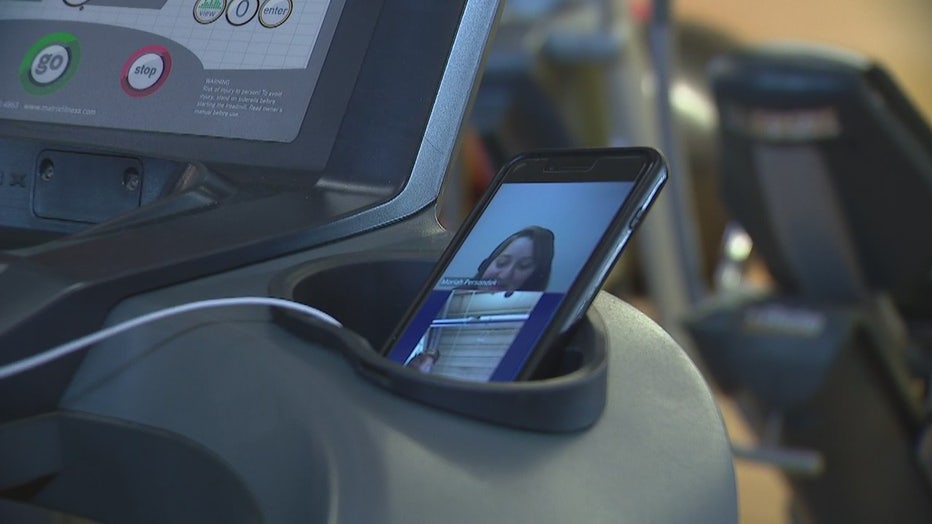For rehabbing from a heart attack, doctors prescribe a cell phone
Cardiac rehab is one of the most important parts of recovering from heart issues, so why are most people not doing it?
It's a problem doctors are trying to fix, but Henry Ford has a high-tech solution that they're hoping will help.
Forty-six-year-old Flo Benton is bouncing back after fighting heart failure, which means the heart isn't pumping adequately.
"The main thing I come into contact with mostly is not that my heart pounds a lot, but I can be out of breath some days. Not major, and somedays I'll be fine," said Flo. "Somedays I feel like I can run a marathon, cause every day is not the same."

Cardiac rehab is key for recovering from heart issues. But not enough people do it
Henry Ford is trying to fix a problem that doctors have been working at for years. How to get more people recovering from heart failure into rehab.
A key part of recovery is cardiac rehab, but instead of having to drive to a Henry Ford Clinic, Flo is using her smartphone to interact with a Henry Ford clinical exercise physiologist.
"They're talking to you for at least 20 minutes. They'll ask you if you're keeping up with your heart rate, they'll ask you what did you get your weight today, they'll ask you how you feel, how you feel in the process of doing your workout and those questions may be repeated two or three times," said Flo.
"If you didn't do anything else today, they'll know you at least did a 20-minute workout," she added.
Using smartphone technology to create a virtual interaction is one of the innovative ways Henry Ford health is tackling a serious issue. Only about 25 percent of heart patients actually follow through with cardiac rehab.
"Patients have problems getting into cardiac rehab. Transportation, child care, dependent care, copays, return to work," said Steven Keteyian, a Henry Ford doctor of preventative cardiology. "We have to find solutions to this so that we can get more patients involved and that way, just like taking their medications, they derive the benefit of a reduced heart problem as a result."

And while it may look like just a walk on the treadmill, this rehab helps patients in all aspects of life.
"All the things, the lifestyle habits that maybe get them into problems, you want to work on after the case," said Keteyian. "Think of smoking, diabetes, blood pressure, those are the things we want to work on afterward as well."
In fact, metro Detroit medical experts are now teaming up with Canadian hospitals to figure out effective ways to get more patients to commit to cardiac rehab. So far, the convenience of the smartphone is priceless.
You can find more resources, including videos, when it comes to cardiac rehabilitation online here.

